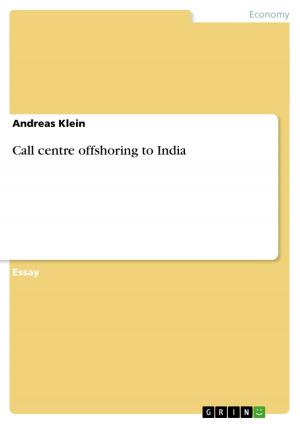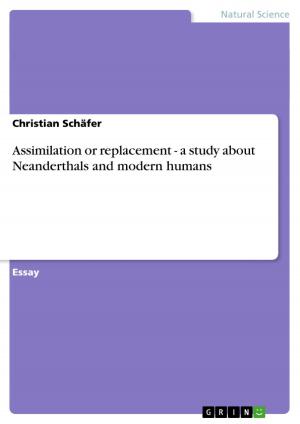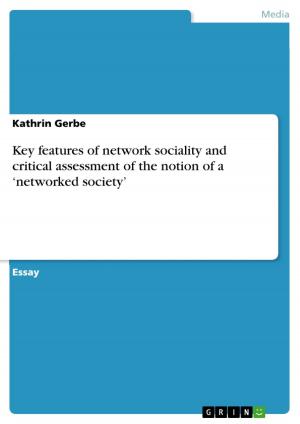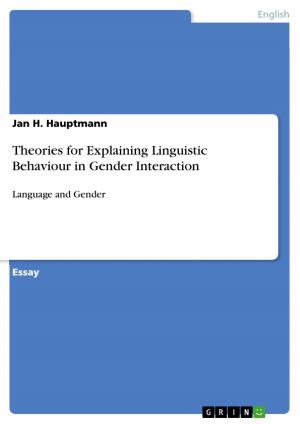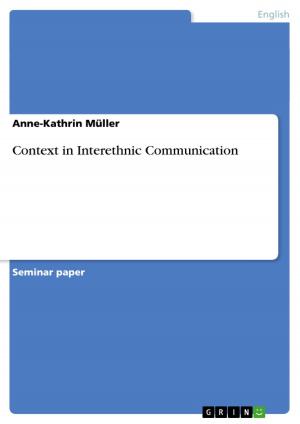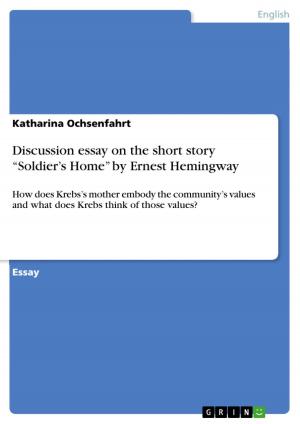The King's Favourites
Homosexuality in Marlowe's Edward II and Shakespeare's Richard II
Fiction & Literature, Literary Theory & Criticism, British| Author: | Henriette Plienow | ISBN: | 9783640340194 |
| Publisher: | GRIN Publishing | Publication: | June 3, 2009 |
| Imprint: | GRIN Publishing | Language: | English |
| Author: | Henriette Plienow |
| ISBN: | 9783640340194 |
| Publisher: | GRIN Publishing |
| Publication: | June 3, 2009 |
| Imprint: | GRIN Publishing |
| Language: | English |
Seminar paper from the year 2009 in the subject English Language and Literature Studies - Literature, grade: 2.0, Johannes Gutenberg University Mainz, course: Shakespeare's History Plays, language: English, abstract: This paper's aim is to analyse and compare the kings Edward II and Richard II as depicted in Marlowe's and Shakespeare's plays with special attention to their relationships to their favourites. It cannot, however, take the historical figures of Edward II and Richard II into consideration as this would exceed the paper's focus. There are many parallels between the two plays. Each is about a king who is deposed and murdered, and in each the barons accuse the king's favourites of having manipulated the sovereign to serve their own political advantage. In both plays, the issue of homosexuality comes up: Edward has a homosexual relationship with his favourite Gaveston, Henry Bolingbroke accuses Bushy and Green of having seduced Richard politically as well as sexually and of thus having misled him as a ruler and destroyed the king's marriage. The question comes up if both kings' relationships to their peers really are - as we understand it today - of a homosexual nature. If so: were the favourites accused of having a negative influence on the kings because of their homosexuality? Is homosexuality in itself a charge heavy enough to depose a king? To answer this, chapter two will explain the Elizabethan view on homosexuality, which differs significantly from our own contemporary understanding. Even though the historical settings of both plays are in the Middle Ages, they will be examined from an early modern point of view since they were both written by Elizabethan playwrights for a contemporaneous audience. Subsequent chapters will examine and compare homosexuality within both plays and analyse which role it plays in connection with questions of power and the barons' revolts.
Seminar paper from the year 2009 in the subject English Language and Literature Studies - Literature, grade: 2.0, Johannes Gutenberg University Mainz, course: Shakespeare's History Plays, language: English, abstract: This paper's aim is to analyse and compare the kings Edward II and Richard II as depicted in Marlowe's and Shakespeare's plays with special attention to their relationships to their favourites. It cannot, however, take the historical figures of Edward II and Richard II into consideration as this would exceed the paper's focus. There are many parallels between the two plays. Each is about a king who is deposed and murdered, and in each the barons accuse the king's favourites of having manipulated the sovereign to serve their own political advantage. In both plays, the issue of homosexuality comes up: Edward has a homosexual relationship with his favourite Gaveston, Henry Bolingbroke accuses Bushy and Green of having seduced Richard politically as well as sexually and of thus having misled him as a ruler and destroyed the king's marriage. The question comes up if both kings' relationships to their peers really are - as we understand it today - of a homosexual nature. If so: were the favourites accused of having a negative influence on the kings because of their homosexuality? Is homosexuality in itself a charge heavy enough to depose a king? To answer this, chapter two will explain the Elizabethan view on homosexuality, which differs significantly from our own contemporary understanding. Even though the historical settings of both plays are in the Middle Ages, they will be examined from an early modern point of view since they were both written by Elizabethan playwrights for a contemporaneous audience. Subsequent chapters will examine and compare homosexuality within both plays and analyse which role it plays in connection with questions of power and the barons' revolts.

